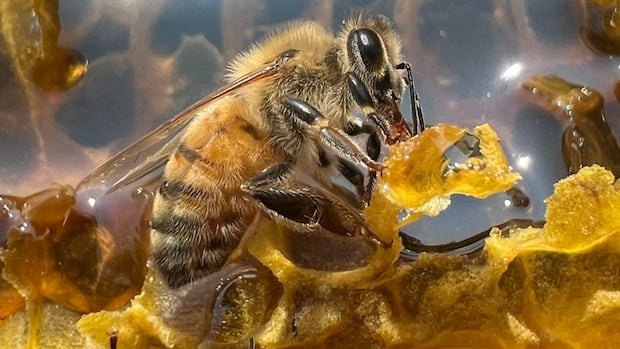In Terrace, British Columbia, a beekeeper faced a challenging situation as her shop was invaded by a massive number of bees in search of honey. Christine McDonald, the owner of Rushing River Apiaries, encountered “robber bees” raiding her indoor shop for food, a behavior typically seen when resources become scarce in late summer. Despite being accustomed to working with bees, McDonald was alarmed by the overwhelming presence of bees in her shop, feeling a sense of panic.
The bees managed to enter the shop through cracks in the old bay door. To protect her equipment and products, McDonald swiftly covered them with tarps and lids. In a strategic move, she sacrificed her bathroom by leaving the light on to attract and trap the bees, eventually releasing them. It took several days for the bees to cease their attempts to return, leading McDonald to secure the shop’s door with tape.
Robber bees are a common phenomenon in late summer and early fall when food sources diminish, and bee populations peak. Alison McAfee, a honeybee scientist at the University of British Columbia, explained that forager colonies may invade weaker colonies to steal food when resources are limited. This behavior is akin to animals like bears exhibiting desperation to accumulate food before winter.
McDonald has since resumed honey production after dealing with the bee invasion. She noted a heightened sense of desperation among the bees this year, possibly due to prolonged heat conditions resembling midsummer. Encouraging fellow beekeepers, McDonald emphasized the importance of ensuring bees are well-fed to prevent them from resorting to robbing other hives for sustenance.

